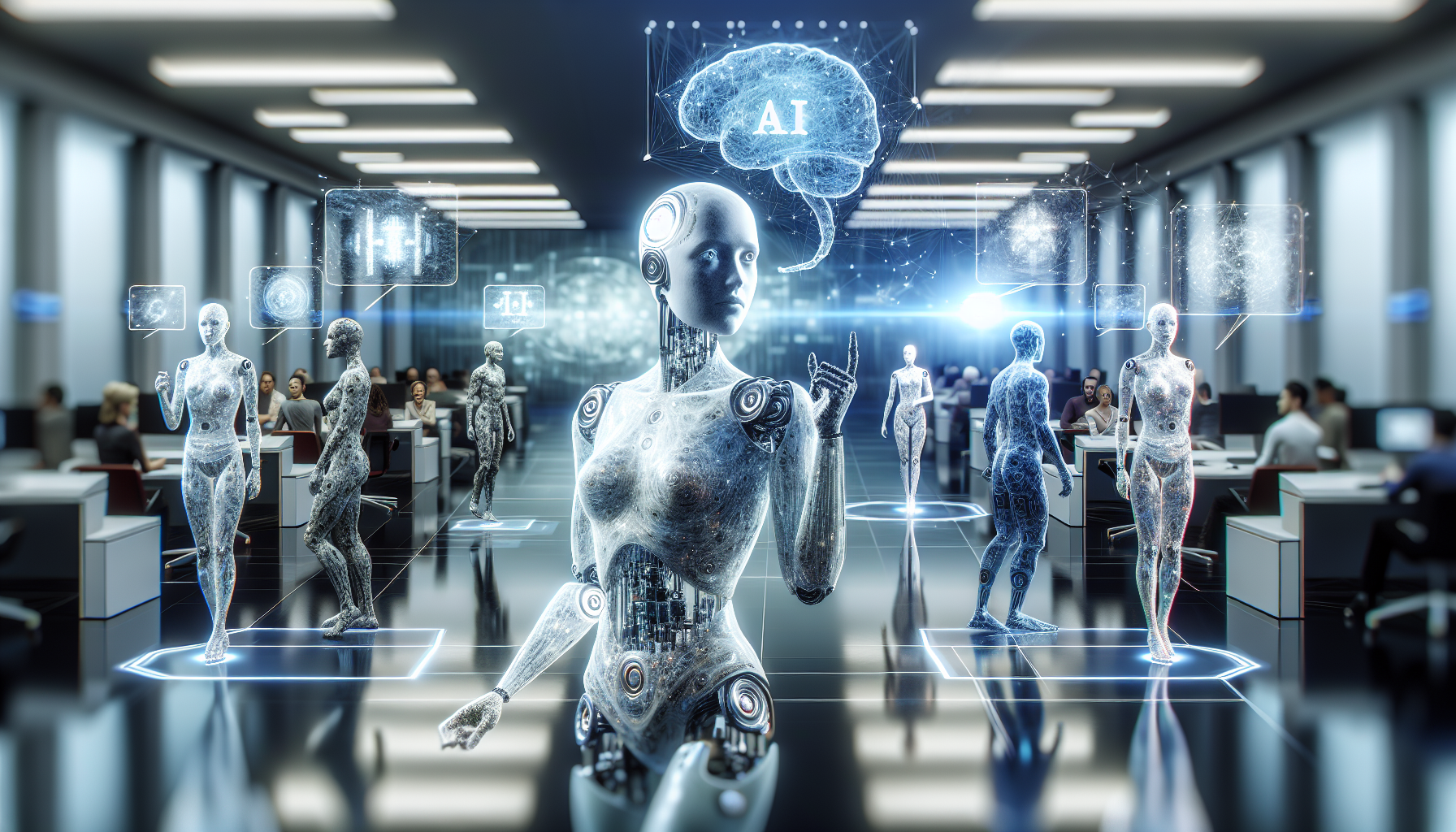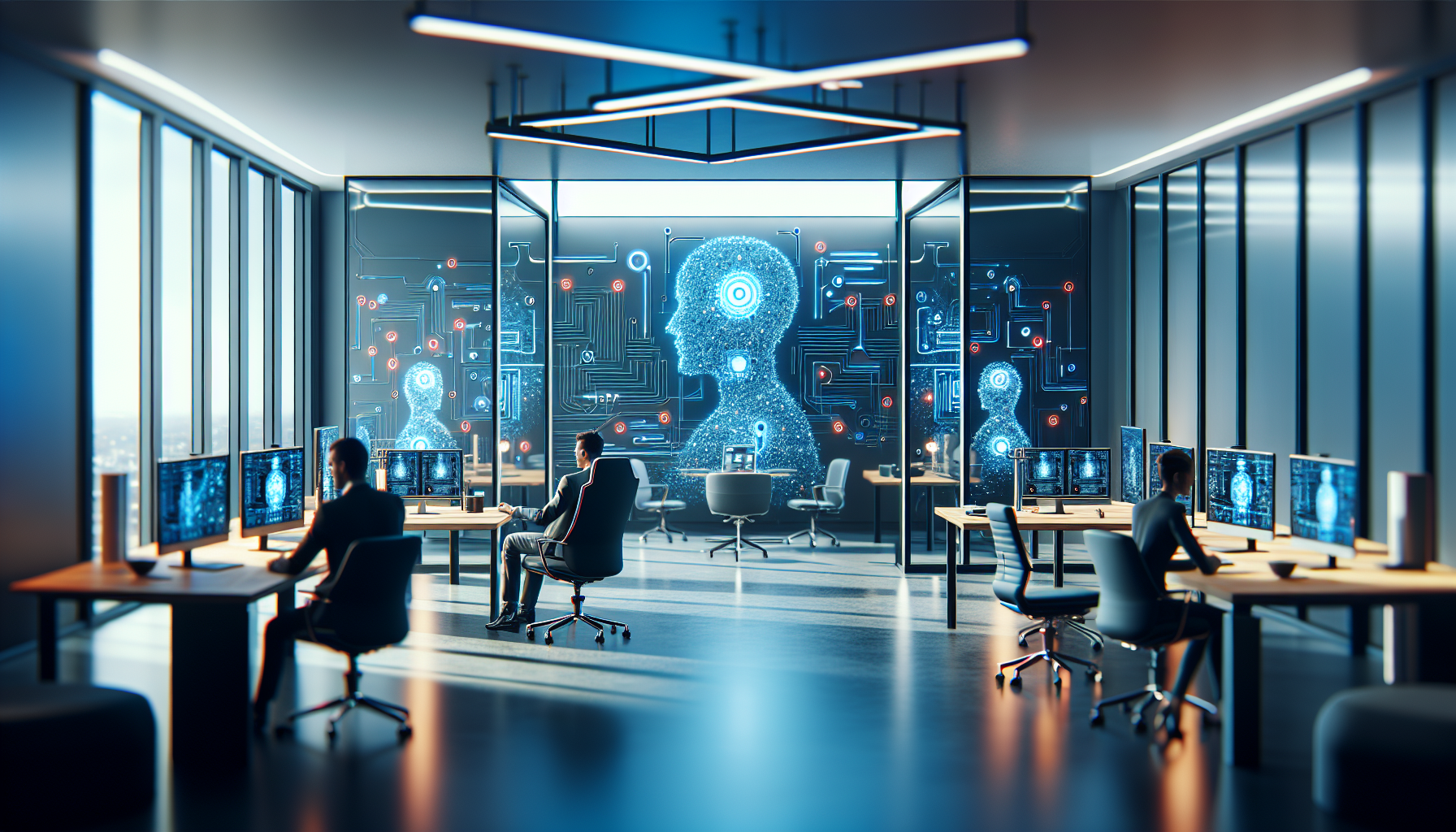
AI and Privacy: Myth-Busting Myths Faster Than You Can Say "Hal 9000"
April 25, 2025
Alright, folks, let's break out the virtual magnifying glass and take a look at artificial intelligence and privacy. It's a topic that fills many with dread, like discovering there's no Wi-Fi on a long-haul flight. But fear not! We're here to bust some myths about AI and privacy, and maybe even tickle your funny bone along the way.
First, let's tackle the elephant in the room—or perhaps the robot in the corner. Many people believe that AI is lurking around every digital corner, ready to snatch your personal data faster than you can say "terms and conditions." But here's the kicker: AI isn't some malevolent force plotting to reveal your embarrassing search history. It's just a bunch of algorithms trying to make sense of the chaos we call the internet.
Consider AI's role in data protection. AI is often portrayed as the villain in the privacy saga, but what if it's actually the caped crusader? AI algorithms can help identify data breaches faster than your neighbor can spot a new car in your driveway. They're the digital watchdogs, tirelessly scanning for anomalies in data patterns. So next time you hear someone ranting about AI stealing their data, remind them that AI might be the reason their data is safe in the first place.
Now, let's address another common misconception: the belief that AI can read minds. Spoiler alert: it can't. While AI can predict your next online purchase with unsettling accuracy (how did it know you needed another pair of slippers?), it doesn't actually know why you're buying them. Maybe you have a slipper addiction, or perhaps you're just stocking up for a slipper-themed party. AI doesn't judge; it just recommends.
Speaking of recommendations, AI is often accused of creating echo chambers, trapping us in a bubble of our own preferences. But let's be honest, we've all willingly clicked on that "related video" rabbit hole on YouTube. AI may suggest content based on your past behavior, but it's not chaining you to your digital habits. The power to break free and discover new things still lies with you—unless you're really into cat videos, in which case, carry on.
Let's move on to the notion that AI is a privacy invasion waiting to happen. While it's true that AI systems collect and analyze vast amounts of data, they're not necessarily interested in your love life or your secret stash of cookie recipes. In fact, much of the data processed by AI is anonymized and aggregated. So, unless your cookies are truly out of this world, rest easy knowing AI probably isn't plotting to swipe your culinary secrets.
Of course, we can't ignore the importance of robust data protection regulations. These regulations ensure that AI companies play fair and don't treat your personal information like a piñata at a data party. They set the rules for how data is collected, stored, and used, putting the human back in the driver's seat of the data car. And if you're picturing AI as a rebellious teenager trying to take the car for a spin, remember that regulations are the parental controls keeping things in check.
Now, here's a fun fact: AI can actually enhance privacy. Yes, you read that right. Techniques like differential privacy and federated learning are designed to protect individual data while still allowing AI to do its thing. It's like having your data cake and eating it too. These techniques ensure that while AI learns from data, it doesn't give away your personal secrets. So, your midnight snack habits remain a mystery—unless you post about them on social media.
As we wrap up this myth-busting journey, let's ponder the balance between AI innovation and personal data protection. It's a delicate dance, like tangoing with a Roomba. But with the right regulations, technological advancements, and a dash of common sense, it's possible to harness AI's potential without sacrificing privacy.
So, dear reader, next time you hear someone spreading AI privacy myths, arm yourself with the truth and a sense of humor. After all, in a world where AI can help protect your data and recommend the perfect pair of slippers, perhaps the biggest myth is that we can't have innovation and privacy in harmony. And who knows? Maybe AI will even help you finally win that debate about whether pineapples belong on pizza.


